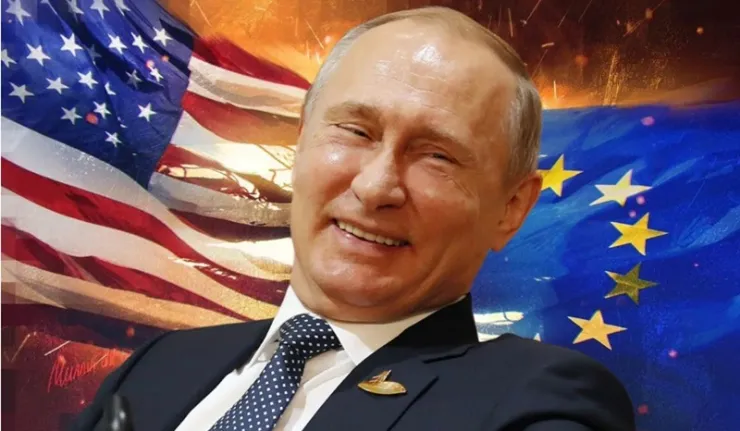The White House has already said it will run out of money to fund Ukraine until 2024 unless the US Congress approves additional funding. This led the Western war machine – primarily led by the United States – to anticipate possible defeat. “There is no guarantee of success with us, but they will certainly fail without us,” a senior US military official told CNN recently. Without military support, American officials now estimate, Ukraine would fall by the summer of 2024. But, in Western calculations, Ukraine’s fall does not only mean Russia’s victory; it also implies a possible collapse of NATO and, ultimately, the fall of the Western-dominated global political, economic and security order.
A recent Wall Street Journal article said:
“More importantly, Russia’s success in Ukraine would increase the threat to NATO’s eastern flank, particularly the Baltic states and Poland. Outside of Europe, it would embolden Moscow’s allies Iran and North Korea and provide China with a model for the military solution to the Taiwan conflict. In all of these cases, U.S. and NATO troops could find themselves in the middle of a military conflict of the type that Ukraine is waging today without direct NATO involvement.
Such prospects pose serious problems. Germany, for example, is considering putting aside the voluntary force and returning to conscription. “I believe that a nation that needs to become more resilient in times like these will have a higher level of consciousness if it partners with soldiers,” said Jan Christian Kaack, head of the German navy. Added to this is the fact that the German army is too small to defend itself against any threat; hence the renewed emphasis on conscription.
But Germany is not an exceptional case. In fact, this mirrors developments in the rest of Europe. The United Kingdom, otherwise known for having one of the best armed forces in the world, faces fundamental problems. Sky News reported earlier this year that a top US general “privately told Defense Secretary Ben Wallace that the British Army was no longer considered a top fighting force”. It was further reported that “the armed forces would run out of ammunition within days if called into combat” and that “the UK does not have the capacity to defend its skies against the level of strikes from missiles and drones that Ukraine is suffering.
Added to this is the fact that the Russian military position in Ukraine remains strong, making it even more difficult for the West to provide sufficient funding. The Biden administration faces its own challenges regarding increasing funding to Ukraine. As for Europe, a recent report showed that funding pledges made in August 2023 fell by almost 90% compared to the same period last year.
It is a war weariness combined with a well-sustained Russian determination to achieve its objectives. For the West, Vladimir Putin remains “stubborn”. As Putin recently reiterated: “There will be peace when we achieve our goals… Now let’s return to these goals – they have not changed. I would like to remind you how we formulated them: denazification, demilitarization and neutral status for Ukraine.”
This article is originally published on reseauinternational.net


